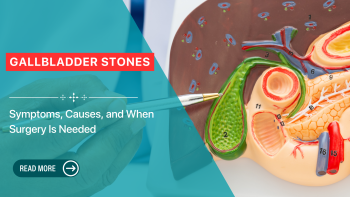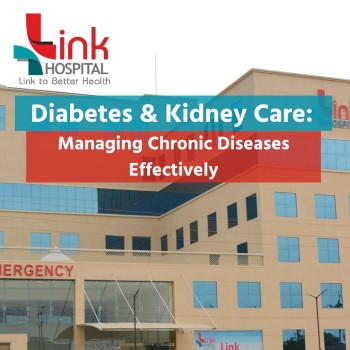A chronic cough can be more than just a
nuisance; it can be a sign of a more serious underlying condition, such as
heart failure. Understanding the potential link between a persistent cough and
heart failure is crucial for early detection and treatment. In this blog, we
will explore the causes, symptoms, and implications of a chronic cough as it
relates to heart failure. Additionally, we will highlight the best
multi-specialist hospital in Gwalior, renowned for its advanced technology and
top-tier doctors and specialists.
Understanding Chronic
Cough
What is a Chronic Cough?
A chronic cough is defined as a cough
that persists for eight weeks or longer in adults, or four weeks in children.
It can be caused by a variety of factors, including respiratory infections,
allergies, asthma, and more seriously, heart conditions.
Common Causes of Chronic Cough
●
Respiratory Infections: Such as colds, flu,
bronchitis, and pneumonia.
●
Asthma: This can cause a chronic cough,
especially at night or early in the morning.
●
Allergies: Including hay fever and allergic
rhinitis.
●
Gastroesophageal Reflux Disease (GERD): Where
stomach acid flows back into the esophagus.
●
Chronic Obstructive Pulmonary Disease (COPD):
Such as chronic bronchitis and emphysema.
The Link Between Chronic
Cough and Heart Failure
What is Heart Failure?
Heart failure occurs when the heart is
unable to pump blood effectively, leading to insufficient blood flow to meet
the body’s needs. This can result from conditions such as coronary artery
disease, high blood pressure, and diabetes.
How Heart Failure Can Cause a Chronic Cough
●
Pulmonary Edema: When the heart cannot pump
efficiently, fluid can build up in the lungs, causing a chronic cough. This
condition is known as pulmonary edema.
●
Left-Sided Heart Failure: Fluid backs up into
the lungs, causing a cough, shortness of breath, and wheezing.
● Right-Sided Heart Failure: Fluid can back up into the abdomen, legs, and feet, but it can also contribute to lung congestion and chronic cough.
Symptoms of Heart
Failure-Related Chronic Cough
Identifying the Symptoms
●
Persistent Cough: Often worse at night or when
lying down.
●
Cough Producing White or Pink Phlegm: Due to
fluid accumulation in the lungs.
●
Shortness of Breath: Especially during
physical activity or while lying flat.
●
Fatigue and Weakness: Due to reduced blood
flow and oxygen supply.
●
Swelling (Edema): In the legs, ankles, and
feet.
●
Rapid or Irregular Heartbeat: Caused by the
heart working harder to pump blood.
When to Seek Medical
Advice
Warning Signs
If you experience a chronic cough along
with any of the following symptoms, it is crucial to seek medical advice
promptly:
●
Shortness of breath.
●
Persistent fatigue and weakness.
●
Swelling in the legs, ankles, or
feet.
●
Sudden weight gain from fluid
retention.
●
Increased need to urinate at
night.
Importance of Early Detection
Early detection of heart failure is vital
for effective management and treatment. A chronic cough can be an early warning
sign, and timely medical intervention can prevent further complications.
Diagnosis and Treatment
Diagnostic Tests
To determine if a chronic cough is
related to heart failure, your healthcare provider may recommend several
diagnostic tests:
●
Chest X-ray: To check for fluid in the lungs.
●
Echocardiogram: To assess heart function and
structure.
●
Electrocardiogram (ECG): To detect abnormal
heart rhythms.
●
Blood Tests: To check for signs of heart
failure and other related conditions.
Treatment Options
Treatment for heart failure-related
chronic cough focuses on managing the underlying heart condition:
●
Medications: Such as diuretics to reduce fluid
buildup, ACE inhibitors, beta-blockers, and other heart medications.
●
Lifestyle Changes: Including a low-sodium
diet, regular exercise, and quitting smoking.
●
Medical Devices: Such as pacemakers or
implantable cardioverter-defibrillators (ICDs) for severe cases.
●
Surgery: In some cases, surgery may be
necessary to address underlying heart problems.
The Best Multi-Specialist
Hospital in Gwalior
For comprehensive diagnosis and treatment
of chronic cough and potential heart failure, choosing a hospital with advanced
technology and a team of top specialists is essential. In Gwalior, the Best Multi-Specialist Hospital stands
out for its exceptional care and state-of-the-art facilities.
Advanced Technology
The hospital is equipped with the latest
medical technology, ensuring accurate diagnosis and effective treatment. From
advanced imaging techniques to cutting-edge diagnostic tools, the hospital
provides a comprehensive range of services for managing heart failure and
related conditions.
Best Doctors and Specialists
The hospital boasts a team of highly
qualified and experienced doctors and specialists in cardiology, pulmonology,
and internal medicine. Their expertise ensures that patients receive the best
possible care, tailored to their specific needs.
Comprehensive Care
The multi-specialist approach of the
hospital ensures that all aspects of a patient's health are addressed. From
initial diagnosis to treatment and ongoing management, the hospital provides
holistic care that promotes overall well-being.
Conclusion
A chronic cough can be more than just a
minor annoyance; it can be an early warning sign of heart failure.
Understanding the link between chronic cough and heart failure, recognizing the
symptoms, and seeking timely medical advice is crucial for effective
management and treatment. By choosing the best multi-specialist hospital in
Gwalior, equipped with advanced technology and a team of top specialists,
patients can ensure they receive the highest standard of care. If you or a
loved one are experiencing a chronic cough along with other symptoms of heart
failure, do not hesitate to seek medical attention to ensure a healthy and safe
future.











